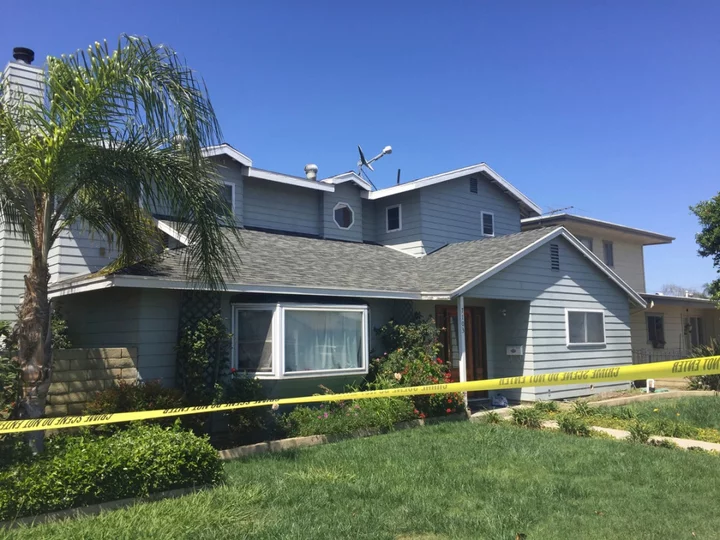
Southern California man convicted in 2018 spa bombing that killed ex-girlfriend
A Southern California man was convicted Wednesday of blowing up his ex-girlfriend’s spa business with a package bomb in 2018, killing her and seriously injuring two clients. A federal jury in Los Angeles convicted Stephen Beal of four felonies including use of a weapon of mass destruction resulting in death, according to a statement from the U.S. attorney's office. Beal could face at least 30 years and up to life in prison when he's sentenced in November. He was retried after a mistrial was declared last year when the jury deadlocked. Beal, 64, of Long Beach, was charged with killing Ildiko Krajnyak on May 15, 2018, with a homemade package bomb he slipped into her Aliso Viejo spa, about 50 miles (80 kilometers) south of Los Angeles. Krajnyak, 48, was killed in the fiery blast when she opened the box. Two clients — a mother and daughter — she had just treated were knocked off their feet. The blast destroyed the business and tore a large hunk from the building. Body parts were found in the parking lot. Beal, a partner in the salon business, was jealous Krajnyak had been dating someone else after their 18-month relationship ended, and he developed a “plan to destroy her,” U.S. Attorney Annamartine Salick said in an opening statement at Beal's first trial. While Krajnyak was in Hungary visiting family, Beal left the bomb at the spa for her to open when she returned, according to the U.S. attorney's statement. A day after the explosion, investigators searched Beal's home and found more than 130 pounds (59 kilograms) of explosive mixtures and precursor chemicals, the statement said. “Beal had years of experience building high-powered model rockets and homemade pyrotechnics," according to the statement. “Laboratory testing determined that the explosive mixture Beal used in the bomb came from the same chemicals he had at his home.” Beal also was found guilty of malicious destruction of a building resulting in death, use of a destructive device during and in relation to a crime of violence, and possession of an unregistered destructive device. Read More Ukraine war’s heaviest fight rages in east - follow live Charity boss speaks out over ‘traumatic’ encounter with royal aide
2023-07-20 09:19

Japan Trade Balance Swings to Surprise Surplus in June
Japan’s balance of trade swung unexpectedly to a surplus in June — the first since July 2021, as
2023-07-20 08:56
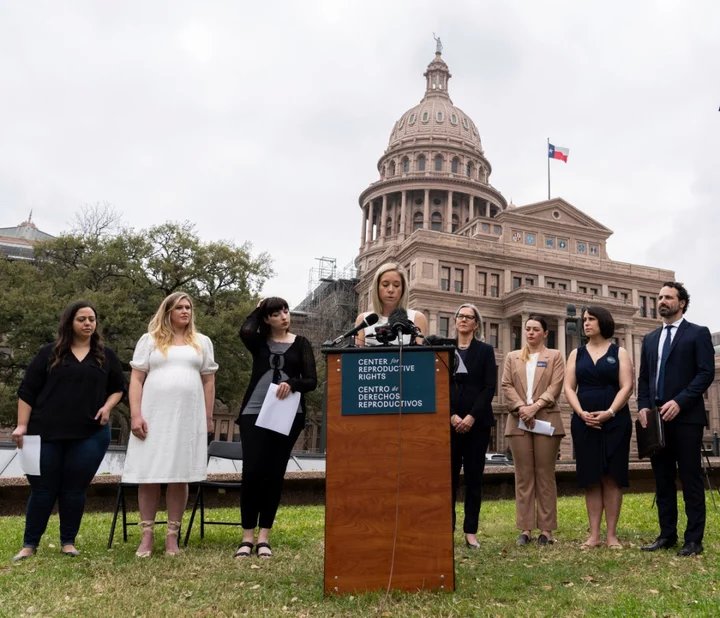
Texas women suing over anti-abortion law give historic and heartbreaking testimony in a landmark court case
In March, unable to legally obtain abortion care in Texas, Samantha Casiano was forced to carry a nonviable pregnancy to term, and gave birth to a three-pound baby who died hours later. Ms Casiano is among 13 women denied emergency abortion care under state law who are suing the state in a landmark case that is now in front of a Texas judge. In harrowing, historic courtroom testimony in Austin on 19 July, Ms Casiano and two other plaintiffs described their agony, isolation and heartbreak as they detailed their traumatic, life-threatening pregnancies and the state’s failure to care for them. As she described her experience to the court through tears, Ms Casiano vomited from the witness stand. “I watched my baby suffer for four hours,” she said in her testimony. “I am so sorry I couldn’t release you to heaven sooner. There was no mercy for her.” Abortion rights legal advocacy group Center for Reproductive Rights Texas filed the lawsuit on behalf of the women in March to force Texas authorities to clarify emergency medical exceptions to the state’s overlapping anti-abortion laws, marking the first-ever case brought by pregnant patients against such laws. Their testimony has underscored the depth of impacts from Texas laws and similar anti-abortion laws across the country, with abortion access stripped away for millions of Americans who are now exposed to dangerous legal and medical minefields during their pregnancies. The conflicting exemptions for medical emergencies in Texas have resulted in widespread confusion among providers and hospitals fearing legal blowback or severe criminal penalties, according to abortion rights advocates. Healthcare providers in the state found in violation of those laws could lose their medical license, face tens of thousands of dollars in fines, or receive a sentence of life in prison. The plaintiffs “suffered unimaginable tragedy” directly because of the state’s anti-abortion laws, Center for Reproductive Rights attorney Molly Duane said in her opening arguments. Texas officials and the state’s medical board have “done nothing” to clarify the law, she said. “I feel like my hands are tied,” said Houston obstetrician-gynecologist Dr Damla Karsa. “I have the skill, training and experience to provide care but I’m unable to do so. It’s gut-wrenching. I am looking for clarity, for a promise that I’m not going to be prosecuted for providing care.” Attorneys for the state have sought to dismiss the case altogether, arguing in court filings that the women lack standing to challenge the law because it is ultimately uncertain they will face similar complications again, that their “alleged prospective injuries are purely hypothetical”, and that some of the plaintiffs admitted they have since “struggled to become pregnant” again after their traumatic experiences. Amanda Zurawski, the lead plaintiff in the case, is still hoping to become pregnant after her life-threatening pregnancy. She called the state’s argument “infuriating and disgusting and ironic.” “Do they not realise the reason why I might not be able to get pregnant again is because of what happened to me as a result of the laws that they support?” she told the court. “Anybody who’s been through infertility will tell you it is the most isolating, grueling, lonely, difficult thing a person can go through.” ‘I wished I was dreaming. I knew I wasn’t’ Ms Casiano, a mother of four, was hoping for a girl. When she visited her physician for a checkup last September, “all of a sudden the room went cold” and quiet, she testified. Her daughter was diagnosed with anencephaly, a fatal birth defect in which a baby is born without parts of a brain or skull. “My first thought was … ‘maybe it’s a surgery, maybe she can be fixed,’ and then she said, ‘I’m sorry, but your daughter is incompatible with life, and she will pass away before or after birth,’” Ms Casiano said. “I felt cold,” she said. “I was hurt. I wished I was dreaming. I knew I wasn’t. I just felt lost.” A case worker at her obstetrician’s office gave her a pamphlet with funeral homes. She was prescribed antidepressants. She could not be referred for abortion care anywhere in the state. Texas was the first to implement a near-total ban on abortion, months before the US Supreme Court struck down the constitutional right to abortion last June, a decision that triggered a wave of state laws and legislation from anti-abortion lawmakers and governors to restrict care and threaten providers with criminal penalties. Amanda Zurawski endured several rounds of fertility treatments, tests, surgeries and misdiagnoses before learning she was pregnant in May of last year. “We were at first in shock … we were over-the-moon excited,” Ms Zurawski said. But her obstetrician discovered that she dilated prematurely, and soon after her membranes ruptured, draining amniotic fluid and endangering the life of her expected child. Doctors informed her there was nothing they could do under what was recently enacted state law, despite knowing with “complete certainty we were going to lose our daughter,” she said. The condition led to life-threatening sepsis. Doctors ultimately induced labor. Her daughter, which she named Willow, was not alive when she delivered. Ms Zurawski and her husband are still trying for pregnancy, but the trauma has closed one of her fallopian tubes, and a doctor had to surgically reconstruct her uterus. They also are considering in vitro fertilization, surrogacy and adoption. She previously testified to members of Congress about her experience, a story she will continue to tell, even if it is “excruciating” to do so, she told the Texas courtroom. “I know that what happened to me is happening to people all over the country. … So many people are being hurt by similarly restrictive bans,” she said. She has spoken out “because I can, and I know a lot of people who are experiencing or will experience something similar who can’t speak out, and it’s for those people I will,” she said. Healthcare providers caring for pregnant patients in the months after the Supreme Court’s decision to overturn Roe v Wade have faced severe obstacles for providing standard medical care in states where abortion is effectively outlawed, leading to delays and worsening and dangerous health outcomes for patients, according to a first-of-its-kind report released earlier this year. Individual reports from patients and providers like those named in the Texas lawsuit have shed some light on the wide range of harm facing pregnant women in states where access to abortion care is restricted or outright banned. But reporting from the University of California San Francisco captures examples from across the country, painting a “stark picture of how the fall of Roe is impacting healthcare in states that restrict abortion,” according to the report’s author Dr Daniel Grossman. More than a dozen states, mostly in the South, have effectively outlawed or severely restricted access to abortion care after the Supreme Court’s decision in Dobbs v Jackson Women’s Health Organization last June. The decision has also opened new legal challenges, ones that could once again reshape the future of abortion access in America, while anti-abortion lawmakers and Republican candidates face a public that is overwhelmingly against such bans. ‘I don’t feel safe to have children in Texas anymore’ Ashley Brandt sent a picture of an ultrasound to her husband when she found out she was pregnant with twins. But after her 12-week ultrasound last May, doctors discovered one of the twins had acrania, in which the skull of the fetus is not formed, and brain tissue is exposed to amniotic fluid. The condition is fatal. Despite no chance of the twin’s survival, Ms Brandt was not eligible under Texas law for a procedure called a selective fetal reduction; Twin A still had some signs of life, like muscle spasms and cardiac activity. They traveled to neighbouring Colorado for care, and she returned home the day after the procedure. She gave birth to her daughter in November. “If I had not gone out of state and just done what was legal in Texas, my daughter … would likely have been in the [neonatal intensive care unit],” she said. “All of my ultrasounds leading up to labor I would have had to watch twin A … deteriorate more and more, every ultrasound. … I would have to give birth to an identical version of my daughter without a skull, without a brain, and I would have to hold her until she died, and I would have to sign a death certificate, and hold a funeral.” She said the state has failed to account for medical emergencies like hers. “I don’t feel safe to have children in Texas anymore,” she said. “It was very clear that my health didn’t really matter, that my daughter’s health didn’t really matter.” Read More ‘I felt I couldn’t tell anyone’: The stigma of abortion keeps women silent. It’s time for us to shout Ohio voters are likely to decide the future of abortion rights One year after Roe v Wade fell, anti-abortion laws threaten millions. The battle for access is far from over
2023-07-20 08:51

Onshore Investors Bought Most Hong Kong Shares in Over Two Years
Mainland investors bought the most Hong Kong shares in almost two and a half years after the city’s
2023-07-20 08:25
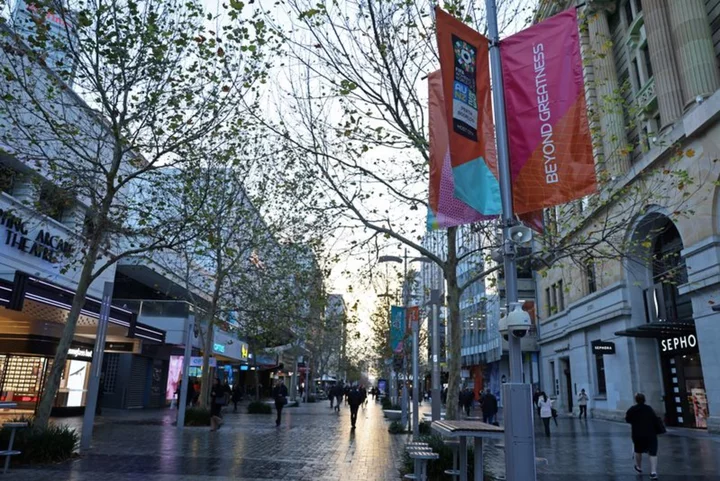
Soccer-Record crowds expected as Women's World Cup kicks off despite Auckland shooting
By Alasdair Pal SYDNEY/AUCKLAND Australia and New Zealand will open the ninth Women's World Cup co-hosted by the
2023-07-20 08:24

Musk Says Tesla to Spend Over $1 Billion on Dojo Supercomputer
Tesla Inc. is sparing no expense to become a player in supercomputing, with Elon Musk saying the electric
2023-07-20 07:48
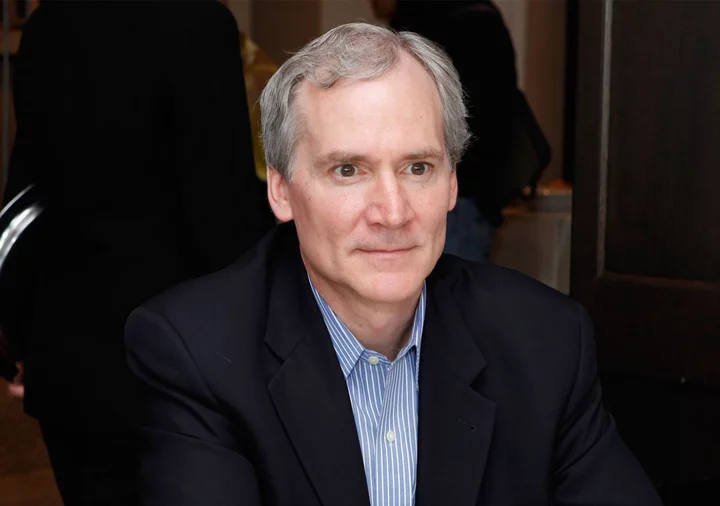
Stanford University President Quits After Problems Discovered in His Research
Stanford University President Marc Tessier-Lavigne is resigning after months of scrutiny over flaws in his scientific research, sparked
2023-07-20 07:22

Discover Financial Falls After Disclosing Regulatory Review, Suspends Buybacks
Discover Financial Services slumped in late trading after the credit-card issuer disclosed it was in discussions with regulators
2023-07-20 05:25

Asda Boss Grilled by UK Politicians Over Rocketing Fuel Prices
British politicians have accused the boss of Asda of pushing up prices, lowering wages and taking money out
2023-07-20 05:24

Twitter’s Surge in Harmful Content a Barrier to Advertiser Return
Elon Musk's Twitter acquisition, and the series of content policy changes that ensued, has led to a dramatic
2023-07-20 05:21

Carlee Russell’s internet searches suggest she staged her own kidnapping, Alabama police say
Carlee Russell made a series of suspicious internet searches in the days before she claimed to have been abducted, Alabama authorities revealed at a press conference on Wednesday. A forensic analysis of Ms Russell’s cell phone, work and home computers found she looked up information about the movie Taken, Amber Alerts, booking a bus ticket from Birmingham to Nashville and “how to take money from a register without being caught”, Hoover Police Department Nicholas Derzis told reporters. The searches shed light on the 25-year-old’s mindset leading up to when she claimed to have been kidnapped after seeing a toddler walking along the side of Interstate 459 on 13 July, Mr Derzis said. Police had been unable to verify Ms Russell’s allegations, and she has since refused to be interviewed, he added. According to authorities, Ms Russell left work at the Woodhouse Spa in the Summit luxury shopping mall in Birmingham at about 8.20pm on 13 July. She called 911 at 9.34pm that night to report seeing a toddler wandering on the side of Interstate 459. When police officers arrived, they found her red Mercedes still running and her belongings, including a wig, phone, Apple Watch and purse, but no sign of her or the toddler. An analysis of Ms Russell’s phone found that she drove for 600 yards, or six football fields, while on the 911 call claiming she was observing a toddler, Mr Derzis said. Ms Russell turned up on foot at her parents’ home in Hoover 49 hours later, and claimed she had been kidnapped and barely survived. At Wednesday’s press conference, Mr Derzis revealed that Ms Russell was seen taking items from Woodhouse Spa before leaving work. Detectives conducted a brief interview with Ms Russell in hospital, where she claimed to have been abducted by a man with orange hair and a bald spot “who came out of the trees”. She claimed the man picked her up and forced her into a car, and the next thing she remembered she was in the trailer of an 18-wheeler semi, Mr Derzis said. Ms Russell told police that she heard a woman and a baby in the semi, but didn’t see them. She claimed to have escaped from the trailer, before being recaptured and taken to a house, where her alleged captors forced her to undress and pose for photographs. She told detectives she was placed in a car, and was able to escape and flee into woods and came out near her home. Detectives noted she had a minor injury in her lip, and a torn shirt. They also found $107 in cash tucked in her right sock. “Out of respect for Carlee and her family, detectives did not press for additional information in this interview, and made plans to speak with her in detail after giving her time to rest,” Mr Derzis said. The Secret Service analysed her phone and computers, and found internet searches that are “very relevant to this case,” Mr Derzis said. On July 11, Ms Russell searched: “Do you have to pay for amber alert or search”. On the day of her alleged abduction, she searched “how to take money from a register without being caught”. She also searched for a one-way bus ticket from Birmingham to Nashville departing that day, Mr Derzis said. She also searched for Taken, a 2008 thriller about an abduction starring Liam Neeson. “There were other searches on Carlee’s phone that appear to shed some light on her mindset, but out of respect to her privacy we will not be releasing the content of those searches at this time,” the police chief said. “We’ve asked to interview Carlee a second time, but we have not been granted that request. As you can see there are many questions left to be answered, but only Carlee can provide those answers. “What we can say is that we’ve been unable to verify most of Carlee’s initial statement made to investigators, and we have no reason to believe that there is a threat to public safety.” Read More Carlee Russell - latest: Alabama police throw cold water on dramatic kidnapping tale during press conference Carlee Russell’s employer breaks silence on ‘sensitive’ investigation into her bizarre disappearance Alabama police find ‘no evidence’ Carlee Russell was trying to help toddler on highway when she disappeared
2023-07-20 05:18

Women's World Cup 2023 predictions: Picking every country to advance to knockout stages
The most competitive World Cup in the history of women's soccer is just hours away, and as the anticipation continues to build, we attempt to predict the 16 teams out of the group stage.Groups A and B 2023 Women's World Cup predictionsGroup A: Norway, New Zealand, Switzerland, Philippi...
2023-07-20 04:48
You Might Like...
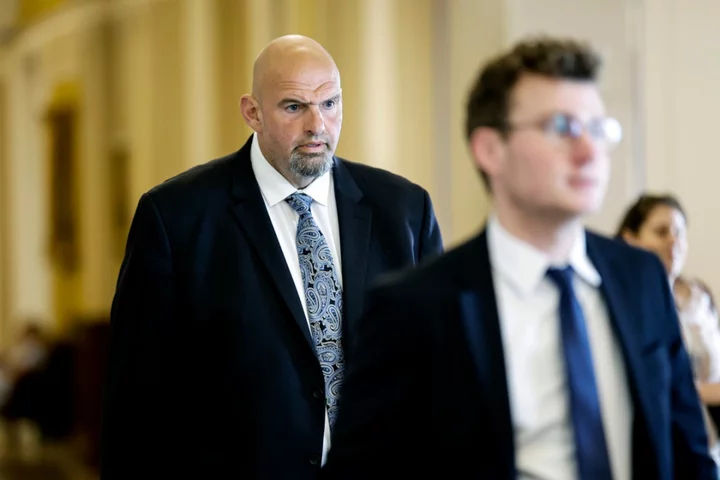
Senator John Fetterman gives emotional speech about disability rights after recovering from stroke

German Budget Crisis Deepens With Freeze on This Year’s Finances
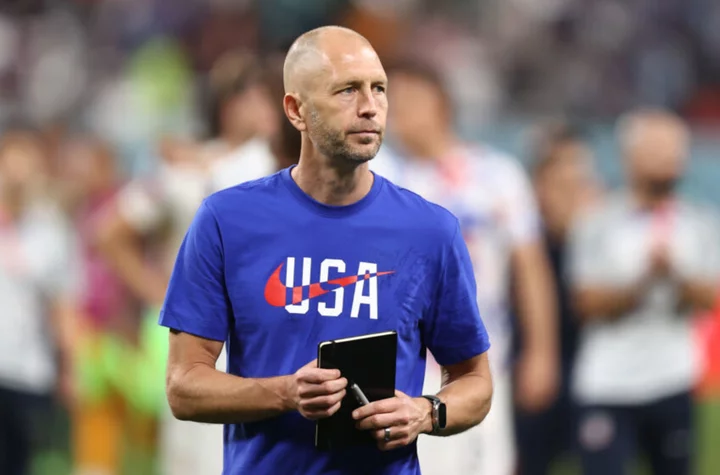
USMNT news: Berhalter returns, Balogun to Inter, Altidore to Greece
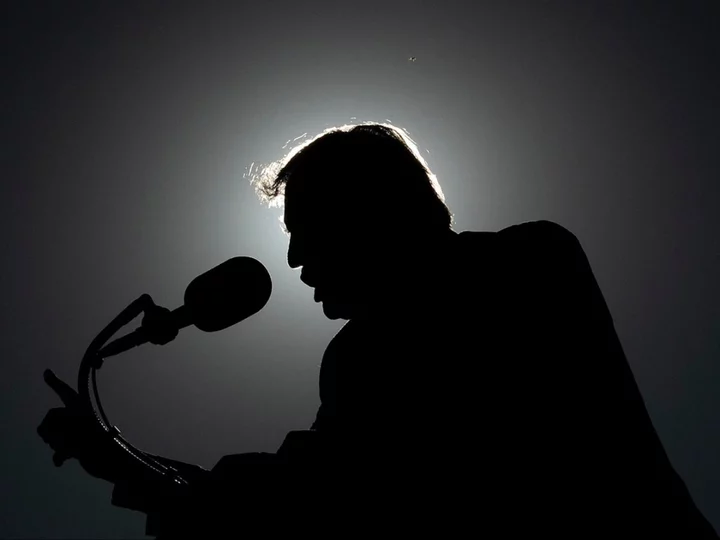
Trump immediately starts fundraising after he’s indicted over secret papers hoard

Ghana Inflation Surges to Four-Month High Putting Rates in Focus
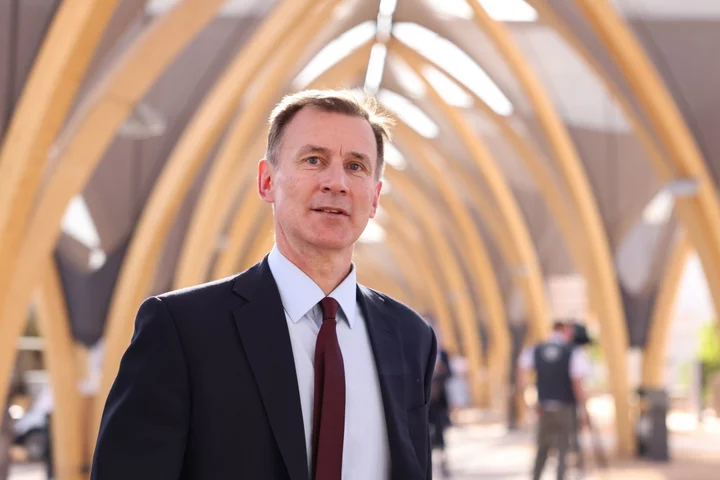
Hunt Set to Extend UK Business Tax Break in Bid to Lift Growth

Sarina Wiegman: How the Dutchwoman turned England into a winning 'machine'

Watch live: Joe Biden holds news conference after Nato leaders summit
